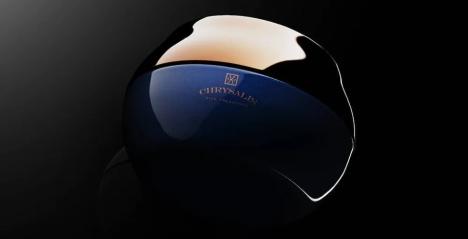Your skin is a protective barrier against the environment and it serves many important functions like thermoregulation and nutrient absorption. Over a lifetime, it is exposed to many extrinsic and intrinsic factors that influence how it looks; lifestyle, diet, location, heredity, and more.
There are a few key changes that happen to the skin which influence its superficial appearance. It may become rougher, develop lesions, become saggy and translucent, bruise more easily, and develop a more fragile composition. For many people, these changes are aesthetically undesirable and uncomfortable.
How Can You Slow Down the Ageing Process?
Your skin is a protective barrier against the environment and it serves many important functions like thermoregulation and nutrient absorption. Over a lifetime, it is exposed to many extrinsic and intrinsic factors that influence how it looks; lifestyle, diet, location, heredity, and more.
There are a few key changes that happen to the skin which influence its superficial appearance. It may become rougher, develop lesions, become saggy and translucent, bruise more easily, and develop a more fragile composition. For many people, these changes are aesthetically undesirable and uncomfortable.
Fortunately, you can make a few changes to your lifestyle and skincare habits to slow down the ageing process. In this article, Victoria Facelift reviews a few key causes of ageing and provides solutions for how you can fight against them.
Habits that help to slow down the ageing process
Let’s face it: there are some things you just can’t control when it comes to ageing skin. Your genetics, for instance, can play a role in how your skin ages, but the degree of pollution in your environment and level of UV will also influence this. But don't worry! There are many skincare tips and tricks that you can incorporate into your daily life to protect your skin from environmental stressors. For instance, while you may not be able to hide from the sun's rays all the time, you can still protect yourself from their potential damage by applying sunscreen.
Below is a compilation of skincare tips that have been proven to slow the skin ageing process in adults. This Victoria Facelift review highlights their efficacy, the science behind each and potential drawbacks you should know.
1. Eating an anti-inflammatory diet
Your diet can have a significant impact not only on your skin, such as more frequent breakouts and premature development of wrinkles, but also on your long-term physical health. A diet full of inflammatory foods will put you at risk for various health conditions like heart disease or high cholesterol.
This is because inflammatory foods affect the length of telomeres. These structures are found at the end of chromosomes and act as protection during cell division. Shorter telomeres denote an older cell for this reason. An inflammatory diet will hasten telomeres’ shortening, leading to early superficial and cellular ageing.
Foods considered inflammatory include:
- Added sugar, particularly high-fructose corn syrup
- Trans fats
- Processed meats
- Refined carbohydrates
- Excess amounts of omega-6 fatty acids
Consume these foods in moderation to avoid experiencing the effects of premature ageing. By contrast, an anti-inflammatory diet includes:
- Fresh fruits
- Leafy green vegetables
- Olive oil
- Omega-3 fatty acids
- Nuts
These will limit the effects of an inflammatory diet and help you look younger for longer. Consider gradually swapping out inflammatory foods for anti-inflammatory options. For example, consider having fruit and yoghurt rather than a sugary dessert. Or switch out vegetable oil for olive oil whenever possible. In doing so, your body will benefit in the long run.
2. Increasing physical activity
Physical activity is a fantastic way to feel good and look good. The benefits of regular exercise are well documented within the scientific community. Through exercise, you increase blood flow which nourishes skin cells and helps them remain vital for longer. The increased blood flow also carries waste products from working skin cells, including free radicals.
When we talk about ageing, it’s important to mention free radicals. These cells are responsible for breaking down collagen in the skin, resulting in blemishes, wrinkles, fine lines, and sagging. Though your body naturally replenishes lost collagen that starts to slow down as you age, pollutants like smog, dust, and smoke, worsen this by further slowing down collagen production.
Conversely, by exercising, your body uses the increased blood flow to move free radicals away from skin cells before they can cause superficial damage to the skin.
If you want to start easy, find a moderate-intensity aerobic workout routine you can easily integrate into your schedule, such as brisk walking, jogging, or cycling. Try doing this for 30 minutes everyday and varying your workouts throughout the week. Using fitness equipment like a skipping rope, free weights, or a gym ball can also help you plan home workouts, aid in toning muscles, and provide a good cardiovascular workout. To take it up a notch, you may also consider signing up for workout classes, like Pilates, Muay Thai, or Zumba. Signing up with a friend might keep you motivated and accountable too.
3. Limiting sun exposure
The sun's rays can be harsh on your skin. In the near-term, this can result in a searing sunburn. But even if you don't get burned, long-term damage may lie beneath your skin. The sun causes accelerated ageing of the skin. This is known as photoaging, and it can lead to skin cancer.
Dermatologists call the sun's damage to skin various names, including photoaging, photodamage, solar damage, and sun damage. It occurs when ultraviolet (UV) light strikes skin that has not been covered by sunscreen, producing DNA alterations at the cellular level. Because photodamage occurs in the deepest layers of the skin, it can take years for the damage to manifest itself.
As reviewed by Victoria Facelift, using an SPF 30+ sunscreen daily as a part of your regular skincare routine helps limit superficial and deeper damage caused by UV exposure.
4. Committing to a skincare routine
A healthy and functioning skin barrier is a vital buffer against dehydration, microbial penetration, allergies, irritants, reactive oxygen species, and radiation. An effective everyday skincare can help boost skin regeneration, elasticity, and smoothness by momentarily altering skin state.
To combat signs of ageing through your skincare routine, ensure you are devoting time and resources to five main steps: cleansing, toning, treating with serums, moisturising, and protecting with sunscreen.
Cleansing your skin is essential for removing dirt and bacteria that your skin comes into contact with everyday. Pick the right cleanser for your skin type, whether oily, sensitive, or dry. You can integrate a toner with hyaluronic acid into your skincare routine to improve your skin’s water-retention capacity. In short, this means your skin will stay hydrated for longer, which is particularly useful in keeping skin dewy and treating fine lines.
Next, use a serum. An antioxidant serum, like vitamin C, will help scavenge those free radicals mentioned earlier. This relieves your skin from stress and damage.
The fourth step involves moisturising to keep skin hydrated and replenish natural hydrators. It helps to keep skin plump and reduces the appearance of fine lines. The last step is acquiring a sunscreen that works for your skin type. This is an especially important step in helping to prevent sun damage by shielding our skin from harmful UV rays.
Your night skincare routine mirrors your daycare skincare routine, except with a few slight differences. As you would in the day, start by cleansing and applying a toner. For added hydration and collagen production, consider using a face mask to strengthen the skin. Then, use a reparative retinol serum. This gold-star solution is known to boost collagen and elastin production, and increase cellular turnover leaving you with bouncy, youthful-looking skin. Conclude with moisturiser and eye treatment.
These skincare solutions can go a long way to improving signs of ageing, but make sure to gradually introduce more active ingredients, like retinol, to avoid damaging the skin in the short term.
5. Limiting alcohol and smoking
According to The National Centre for Biotechnology Information, studies have shown a link between tobacco or alcohol use and early skin ageing. Consuming two or more drinks a day can not only cause skin dryness, but also inflammation of skin tissues. While the initial outcome of the inflammation is a bright, rosy complexion, the long-term outcome is not as pretty. Over time, alcohol will gradually damage collagen, which gives our skin its smooth elasticity.
As for smoking, the effects on overall health and ageing have been well-documented. There is no getting around the reality that smoking accelerates the ageing process. Nicotine causes blood vessels to narrow, which in turn reduces oxygen flow and nutrients to the skin cells. Habitual pursing of the lips also causes wrinkles to form around your mouth. Chemicals in cigarettes also cause the skin to be remodelled and lose its elasticity. Crow’s feet, puffy skin around the eyes and deep creases between the eyebrows are just some obvious signs of premature ageing.
Want your complexion to improve as quick as in a month’s time? Quit smoking! In fact, the outward symptoms of smoking will essentially fade after six months to a year.
Discover how Victoria Facelift can assist in keeping your skin supple and vibrant
All of these anti-ageing strategies should be employed not only for aesthetic reasons, but for the preservation of general health and wellbeing. That said, for those after a more fuss-free method for youthful-looking skin, the Victoria Facelift Power-Lift Facial may be a viable solution.
Victoria Facelift's signature Power-Lift Facial, which uses a unique anti-ageing concoction from the UK, known as V-Factor, can prevent and treat various skin ageing issues. It can slow down skin ageing and deliver rapid, noticeable effects by using ingredients that pack a punch, such as Epidermal Growth Factor (EGF), Hydrolysed Collagen, and Hibiscus Abelmoschus Seed Extract.
Key ingredients and benefits of the Signature Power-Lift Facial
EGF is a potent antioxidant that is responsible for epidermal development and repair. The V-Factor formula effectively increases collagen and hyaluronic acid production, thereby tightening saggy skin, and smoothing out wrinkles and fine lines. This is done using Victoria Facelift's state-of-the-art Power-Lift Machine that radiates electromagnetic heat waves to penetrate the active ingredients into the deep skin layers, promoting skin suppleness and skin cell reparation. This technique also guarantees that the formulation is absorbed more effectively into the skin.
Understanding the customer journey
Interested to come in for a Signature Power-Lift Facial? Here’s what you can expect, step by step, with Victoria Facelift
- Computerised skin scan
Detailed computerised skin scans reveal your exact skin condition to trained consultants, allowing them to accurately identify the root causes of your skin problems to develop the most effective treatment.
- One-to-one consultation
Share your skin concerns during a professional one-to-one consultation with Victoria Facelift’s skincare specialists.
- Customised facial treatments
The trained consultants will customise a treatment programme based on your skin type, age, and condition to effectively tackle your specific skin ageing problems and ensure the best results.
- Constant monitoring during the treatment programme
Your skin condition will be monitored throughout your treatment process to ensure that your consultant constantly stays updated on your skin condition and progress. This way, she can customise the treatment accordingly to suit your skin's most current state.
With all the information from this exclusive Victoria Facelift Review, you can now make informed decisions about the best anti-ageing solution for your skin and take concrete steps towards your skincare goals.












